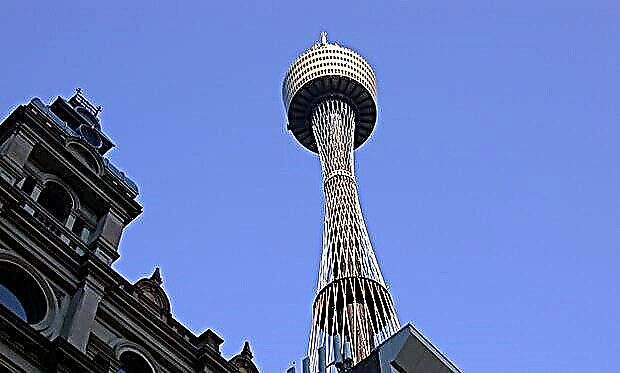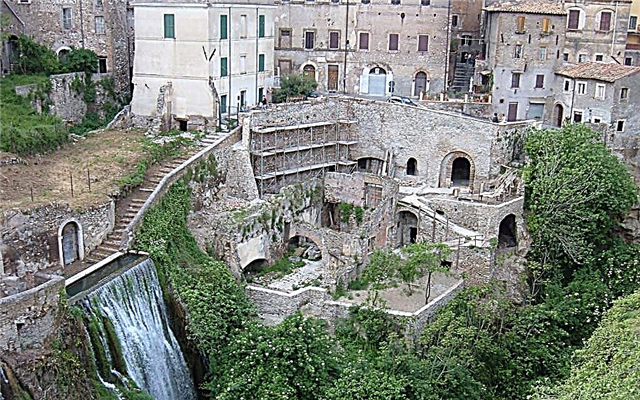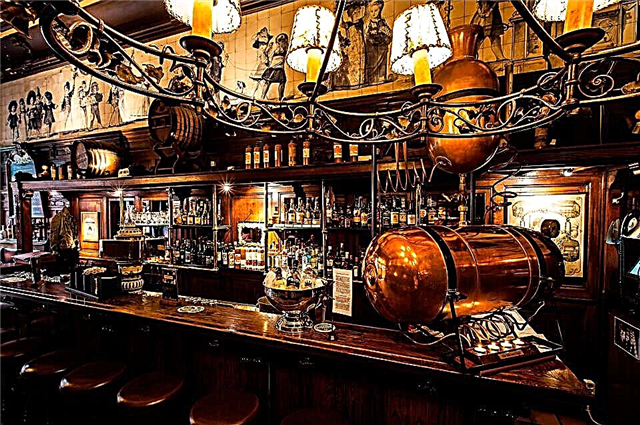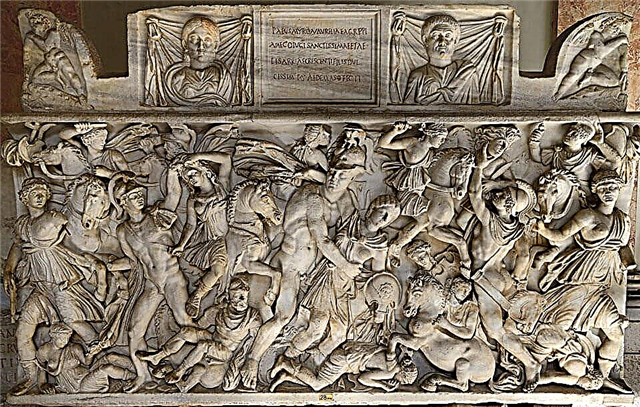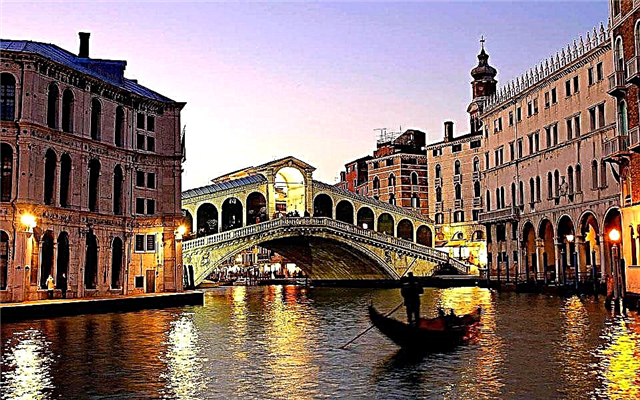We learn about the places where civilizations were born from films and books. That is why everyone dreams of visiting ancient cities since childhood. Amazing cities, whose age is counted for centuries and millennia, beckon like a magnet. They are overgrown with legends and keep unique monuments of world history.
Petra in Jordan
Article: Petra - "a city as ancient as time itself"

In ancient times, the city was the capital of the Hashemite state, formed by an Arab tribe. You can find a stone miracle in the desert near the Akkaba resort. It will take about 4 hours to explore all its attractions, during which you will have to cover a path of 10 km. The excursion starts from the entrance to a narrow gorge, at the exit from which the Al-Khazne building meets the holidaymakers. The temple-mausoleum, also referred to as the Treasury of the Pharaohs, conveyed the skill of the best stonecutters of antiquity. It is followed by the street with the Colonnade, attractive with red and pink buildings. On one of the rocks rises the monastery of Ed-Deir, attracts with its beauty the Roman 3-storey palace, the Urn burial vault is striking. Most of the structures were intended for rituals.
Ancient Greek Ephesus in Turkey
Article: Ancient Greek Ephesus - the freshness of antiquity

It was built by the Greeks in the 9th century BC. For many years of its existence, the ancient city was able to absorb the cultural and historical values of many countries of the ancient world. Even a one-time visit to Ephesus allows you to see many unique attractions that annually gather thousands of tourists around them. These are the fountain of the Emperor Troyan, the library of Celsus, the destroyed temples of Artemis and Hadrian, the remains of the sanctuaries of nymphs and ordinary buildings, attractive for their unusual designs. Surprisingly, the huge amphitheater, erected by the Hellenes for entertainment, has been perfectly preserved to this day. Ephesus has undergone many changes in its history, but no events could take away its beauty and wealth. The unusual city leaves indelible memories of itself.
Persepolis in Iran
Article: Persepolis - a symbol of the power of Ancient Persia

City-landmark, conveying the luxury and grandeur of the ancient Persian empire of the Achaemenids. In 330 BC. he was burned by the Macedonian. Despite this, the remains of the ancient palace complex are still perfectly preserved in the city. They are located on a high platform and occupy 135 thousand square meters. m. The cultural "core" of Persepolis is the apadana, or a giant square-shaped hall that can accommodate up to 10 thousand people. Apadana rises on a 2.5-meter platform, and its walls are made of durable raw brick material. Medieval Persepolis was used by the locals as a quarry. Since 1931 archaeological work has been carried out here. The columns of Persepolis are adorned with ancient images and covered with writing by tourists who wished to leave a memory of themselves in the form of their own names.
Baalbek in Lebanon
Article: Baalbek - Cyclopean temple complex of the Ancient World

The city-temple, lost between the mountains of Lebanon and Anti-Lebanon. It is shrouded in many legends explaining its appearance on Lebanese soil. The city owes its name to Baal, a deity worshiped by the Egyptians and Assyrians. The attractions of Baalbek are temples, amazing in their architecture. Scientists still cannot understand how, without the use of high-tech tools, ancient people managed to grind huge boulders so smoothly and use them for construction. The researchers of Lebanon are also surprised by the fact that under the temple there is a system of underground passages. The width of this ancient labyrinth is about 3 m, the height is 2.5 m. The southern stone of Baalbek is also attractive for tourists, climbing which you can feel like a microparticle of the vast Universe.
Palmyra (Tadmor) in Syria
Article: Palmyra - "emerald framed by the desert"

An ancient Syrian city, the first mention of which is found in the chronicles of the 19th century BC. The small elliptical town is decorated with an 11-meter colonnade connecting the cult and shopping centers. This colonnade is considered the main street, but as you move along it you can see arched branches leading to the neighboring streets.
The center of the road is decorated with a triumphal arch, which, despite its dilapidated state, is still striking in its grandeur. The street ends with the Bela sanctuary, erected in 32 AD. in honor of the local deity. This temple was the main one, and its territory was represented by a courtyard with swimming pools. The Temple of Nabo, the ruins of Roman baths, the amphitheater, the Senate, the agora, Diocletian's camp, the Necropolis and the fortress of Kalaat Ibn Maan are considered the main attractions of Palmyra.
Polonnaruwa in Sri Lanka
Article: Polonnaruwa - the ancient capital of Sri Lanka

The ancient capital of the island of Sri Lanka. Its main attraction is the Stone Temple, built to worship the Buddha. 4 huge statues of the deity are carved directly into the granite rock. Particularly, pilgrims are attracted by the statue of Buddha, who crossed his arms on his chest. The riches of Polonnaruwa are numerous brahminical monuments, the ruins of the garden city of King Parakramabahu, the Lotus Bath, Lake Parakrama Samudraya. The Cave of the Spirits of Knowledge, also known as Gal Vihara, is recognized as a mysterious territory in Polonnaruwa. And this is not the usual underground kingdom, but an open stone wall with impressive statues of Buddha carved out of stone, frozen in a lying and standing position. Today the ancient city is represented by the remains of palaces and temples enclosed in a rectangle of the city wall.
Chichen Itza in Mexico
Article: The ancient city of Chichen Itza - the sinister sanctuary of the ancient Maya

The ancient Mexican city belonged to the people of Itza. The name has an interesting translation - "the well of the Itza tribe". Once having hundreds of buildings, the city occupied about 6 square meters. miles. Today it looks like ruins, among which about 30 preserved buildings are of historical value. Archaeologists attribute Chichen Itza to the Mayan culture, tk. most of the buildings were erected by representatives of this tribe. Another group of ancient buildings and cenotes - smooth-walled wells were built already in the Toltec period from the 10th to the 11th century AD. But the most striking buildings remain those that were built by the Mayan tribe (under him the city became the largest religious and ceremonial center). These are Pali House, Deer House, Red House, Temple with lintels, church, monastery with outbuildings, Akab Dzib.
Teotihuacan in Mexico
Article: The ancient city of Teotihuacan - the place where people turn into gods

One of the most unusual cities in ancient Mexico. It is located on the edge of the Anahuac Valley in a treeless highland area. The year of its foundation is considered to be 750th, dating back to our era. In the Nahuatl language, the word "teotihuacan" means the area in which people turn into gods. Teotihuacan has a great variety of attractions. The city is rich in temples and palaces, the walls of which are decorated with original frescoes. Its historical place is the Citadel - this is a square framed by platforms with 16 pyramids. According to researchers, the royal residence of the ruler of the ancient city was located here. Another attraction is hidden inside the Citadel - the Pyramid of the Feathered Serpent. However, the pyramids of the Sun and the Moon have always eclipsed the monuments of the mysterious Teotihuacan with their grandeur and beauty.
Machu Picchu in Peru
Article: Machu Picchu - the last stronghold of the Incas

The city, which belonged to the Incas in antiquity, eventually turned into a tourism center for South American Peru. Built in the XV century. in the mountains, he got a suitable name - "old mountain" (Quechua language). The news of the existence of a piece of the Ancient World, lost in the Andes, was made public in 1911.American Hiram Bingham. The wondrous Machu Picchu is also called the city in the clouds. Modern researchers of its territory are struck by the fact that when the city was founded by the Incas, all the nuances of geology, topography, ecology and astronomy were taken into account. All buildings with unusual triangular roofs stand on natural slopes, but they are built in such a way that they will not be damaged even in the event of an earthquake. Since 2007, this wonderful city has been included in the register of New Wonders of the World. His artifacts are on display at the Museum of the City of Cusco.
Leptis Magna in Libya
Article: Leptis Magna - "Rome" in Africa

The ancient city, founded by the Phoenicians in the VII century. BC stretching on the Mediterranean coast next to the city of Homs (Africa, Libya). For 3 centuries, it was subject to Carthage, at the end of the Second Punic War, it belonged to the Numidians, and then to the Romans. The peak of its heyday falls on the end of the II century. Today, on the territory of the city, you can get acquainted with many Roman monuments: the ruins of the Thermal Hadrian, the theater, the triumphal arch of Septim Sevres, the central hall with statues and mosaics, the ruins of once luxurious villas decorated with mosaics, the Forum, the semicircular Nymphaeum, the Basilica. Outside the city there is an amphitheater and a circus. The Roman Circle is also very interesting. The structure, which looks like a horseshoe, is located on the eastern side of Leptis Magna.

